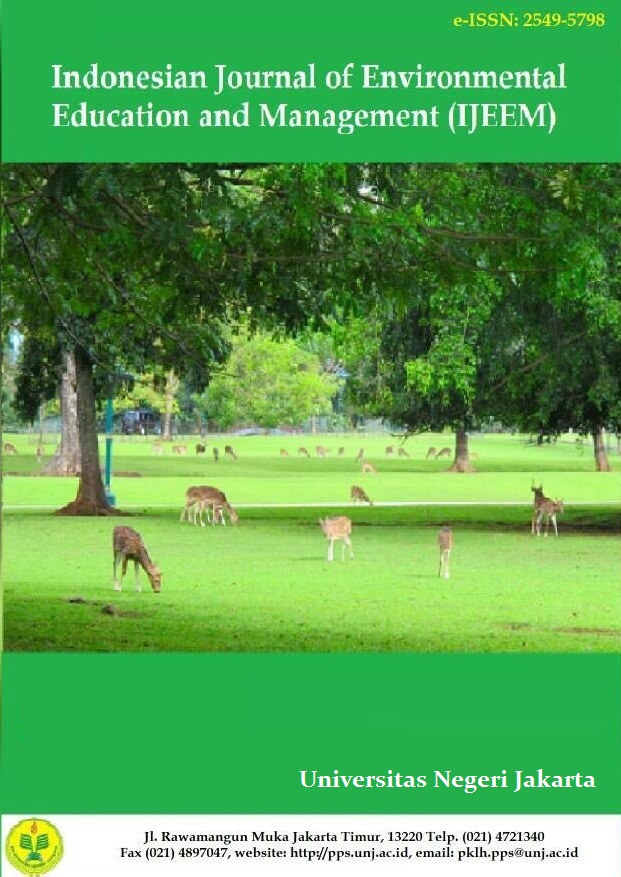Pengaruh New Environmental Paradigm dan Environmental Sensitivity terhadap Responsible Environmental Behavior Siswa
Abstract
The environmental responsibility behavior that students have is the result of interactions between various factors, is the paradigm and sensitivity of students to the environment. Students can have environmental responsibility behavior if the students' paradigm and sensitivity to the environment are good. The environmental responsibility behavior that students have is the result of interactions between various factors, is the paradigm and sensitivity of students to the environment. Students can have environmental responsibility behavior if the students' paradigm and sensitivity to the environment are good. The effect of paradigms and environmental sensitivity has an important role in raising student responsibility behavior towards the environment. This study aims to investigate the effect of New Environmental Paradigm and Environmental Sensitivity of the responsible environmental behavior. Research conducted at SMAN 100 Jakarta on the Semester I of 2018/2019 school year. The method used is survey with quantitative-causal approach and path analysis. The sample were 108 students from Mathematic and Science first grade. Based on the hypothesis test, the value of the path coefficient of X1 to X2 is 0,304, X2 to X3 at 0,309, and value of the path coefficient of X1 to X3 through X2 is 0,093. Based on these results, it is conclude that there is the The Effect of New Environmental Paradigm (NEP) and Environmental Sensitivity (ES) toward Responsible Environmental Behavior (REB) on students of SMAN 100 Jakarta.





